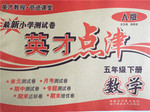题目内容
【题目】____, the shower water is no longer usable until the chemicals and wastes are removed from it.
A. Considering to be polluted
B. Considering to be polluting
C. Considering to have been polluted
D. Considering to have polluted
【答案】C
【解析】考查非谓语动词的时态和语态。句意:考虑到喷淋水已经被污染了,因此在没有给除去水里的化学物和污染物之前,这水是不能用的。水和污染之间是被动关系,用被动结构,而且污染已经是过去的事情,用完成时。所以这里的不定式要用完成时的被动形式。故选C。

练习册系列答案
 全优冲刺100分系列答案
全优冲刺100分系列答案 英才点津系列答案
英才点津系列答案
相关题目